Text
Tainá Müller, queen of crime drama series

by Cleo Guimarães | Mar 19th, 2021| Interview
The actress is in the cast of three major productions of this genre scheduled to premiere in 2021, among them, the long-awaited second season of Good morning, Veronica
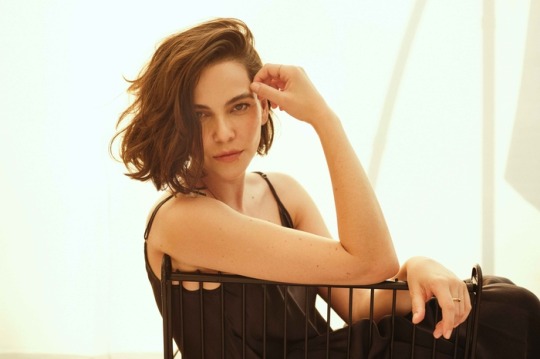
PHOTO BY GUSTAVO ZYLBERSTAJN
Even Tainá Müller herself doesn’t understand why she has been cast in for several police series one of after another. "It must be a coincidence," she says. The 38-year-old actress acts in no less than three major productions of this vein planned for this year. The most awaited of these is the second season of Good morning, Veronica, one of Netflix's biggest hits of 2020, which starts to be shooting in the month of May.
She plays the police clerk who gives the series its name. “The Brazilian woke up to this type of genre, previously seen as an American thing,” she explains. Two roles as a criminal lawyer, in Braulio Mantovani's series Mal Secreto (Secret Evil), and in eight episodes of Atenuantes (Attenuating), written by Claudia Lage, are still in progress. Taina has nothing to complain about it: “I love acting on soap operas, but I found myself in the series.”
This paper is a free translation of Tainá Müller's interview. All rights reserved to Veja Rio blog.
#tainamuller#taina muller#bomdiaveronica#bom dia veronica#malsecreto#atenuantes#entrevista#Interviews
5 notes
·
View notes
Text
Tainá Müller about her real-life heroine: "I want to play women who help other women"

by Renata Maynart | Oct 16th, 2020 | Interview
As the leading actress of "Good Morning, Veronica", she celebrates the possibility of uniting work and personal concerns
While talking to Revista Donna by phone, the actress Tainá Müller made a restrained outburst.
- I was sure that 2020 would be my professional year - she said, referring to the jobs postponed by the pandemic.
But, a few days later, her protagonist in Good Morning, Veronica, a series inspired by the book by Ilana Casoy and Raphael Montes, would confirm her pre-coronavirus foreboding. Netflix's production was among the most watched in Brazil in early October. And she took her name to the center of a debate around a theme that she has already been a spokesperson for on social media: “Brazil is a brutal country to be a woman.”

PHOTO BY GUSTAVO ZYLBERSTAJN
Like a heroine who fails, cries and takes a beating - literally -, the 38-year-old Porto Alegre woman met one of her purposes with the recently launched project, as she likes to say. Graduated in Journalism and pursuing a postgraduate degree in Contemporary Philosophy, Tainá also looked for a way to put her visibility at the service of the search for real solutions to urgent problems. In the second week of social distancing, she started to invite guests on her Instagram profile to talk about topics such as intersectional feminism, indigenous issues, mental health, and the environment, among others. All works are the result of a restlessness that accompanies her in her studies and in her personal relationships - and which should take a new format on YouTube.
Living in São Paulo with her husband, director Henrique Sauer, and her son, Martin, aged four, she returned to the city where she lived since she was modeling, after an eight-year stint in Rio de Janeiro. Also there is a part of her family nucleus, the sisters and presenters Tuti and Titi Müller. A united trio that helped shape another one of her ambitions:
- I want to play women who help other women.
Revista Donna: How was it to join in a project with a theme that touches you personally?
Tainá Müller: The question of women has always touched me, it is a [thing that I] harping on the same string. When I joined this job, I was aligned with this purpose. There are some that are pure entertainment and have their value. But this one got me in the vein. The theme speaks of Brazil, a brutal country to be a woman when we look at the numbers. These are questions that move me a lot, I came from a female environment, it is one of my life's purposes to interpret women who help other women. She is not a tireless heroine, she makes mistakes, but her intention moves me.
RD: And sharing the set with Ilana Casoy, in Good Morning, Veronica?
TM: Ilana is a very interesting woman. I sat down to lunch with her and I lose track of the time [When I talked to her]. Having her and Raphael Montes (authors of the book that originated the series) on the set was essential. They watched the scenes, helped build the character, and They were also very generous. They understood that the Veronica they wrote is a little different from my version. And I am happy that they are happy with this collective construction.
RD: You commented that you think it is strange to see yourself in the rerun of the soap opera Flor do Caribe.
TM: I was in my fourth soap opera, I hadn't even moved to Rio, I lived so much afterwards. When we talk about 2013, we remember that social upheaval, which resulted in all the madness. I changed, but so did the world. It’s somenthing like who blinked, lost it. If you don't change your values, you are left behind.
RD: You are writing a book with Piangers. How's it going?
TM: It was very curious. I wrote an unpretentious text for Globo called Mãe Não Dorme, about that first-time mother thing, in awe in the world in full transformation. The Companhia das Letras called me, but I kept thinking that, to make a book about motherhood, I should have six children (laughs). Then they brought Piangers to create as if it were a dialogue, talking about how our creation was, and what we pass on or not to our children. Also what we want to heal from this relationship. We met more than a year ago, sometimes we recorded the conversations and we are polishing it. The book comes and goes. It is for the beginning of next year at the latest. It's just not ready because of me (laughs).
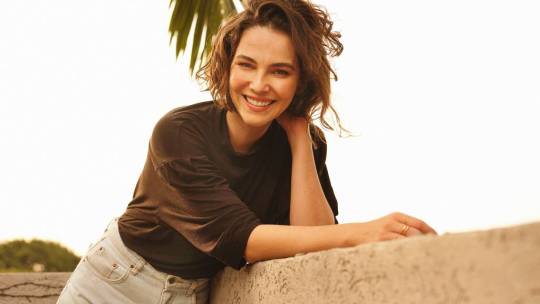
PHOTO BY GUSTAVO ZYLBERSTAJN
RD: You moved to São Paulo because of your work and soon the pandemic came. How was the adaptation?
TM: It was a big change, because Martin was born in Rio de Janeiro, he was used to the city and his friends. When my husband and I got jobs in the city, I also thought that my sisters were here and that it would be nice to have this base in São Paulo after eight years in Rio. When social distance started, Martin was adapting in the school, it was a blow. . Now we have a pedagogue who comes home to give him a boost, so he doesn't just stay on his cell phone. And finish repairs on the house that we might not have time to do.
RD: When did you realize that it was time to create new projects in this period?
TM: When we stopped, they said it would be for 15 days, but I went to do some research and realized it was going to be a long time. But I confess that I thought I could still go back this year. After the initial fright, the anxiety started to hit, the feeling of finding everything very suffocating, of seeing people in delicate situations, the whole conduct of this crisis. It was then that, in the second week, I started the lives with people who were thinking about alternatives. What we are experiencing is the result of a society that we invented. And everyone knows, even if intimately, that something has not gone right. Somewhere we fail, disconnecting from the environment that gave us life. All of this made me reflect.
RD: How is the choice of the guests?
TM: Djamila Ribeiro was my teacher in intersectional feminism, and I thought this debate was urgent. Thinking about whiteness, don't just post hashtags. It was a subject in which she was very active, she was already active in my life. Coincidentally, protests came to the United States soon after. We artists are a little bit of an antenna of the world, [it’s like] we understand the collective thinking. My studies about indigenous people was also on the agenda. I have been trying for a while to decolonize my thinking by doing postgraduate studies in Contemporary Philosophy. The Western society has done a lot of incredible things, but not because I want to be different or nice, I think we have to look for other ways. Humanity has a very wide range of thinking that cannot be excluded.

PHOTO BY GUSTAVO ZYLBERSTAJN
RD: When did you come up with the idea of thinking about a format for the YouTube lives?
TM: It was really cool to get the people feedback, and Arruda (Mauricio Arruda,director) is my friend and has a research very similar to mine. We decided to organize, make the most edited thing, cute and put it on Youtube. Or, who knows, even thinking about a bigger project, for a platform later on.
RD: You say that your family has always been very loving, but with a macho model. When did you notice this dynamic?
TM: I have always been uncomfortable with this thing in our culture, with men sitting around drinking beer and women doing the dishes. And I didn't understand why. I only had an idea when I got older and, even more, after I had a son, when I realized that my mother raised three children alone, without a nanny. And until then, I had the thought that “my mother didn't work”. When I realized it, a deep respect came, because I really don't know how she got it. I bought this narrative for a long time, today I don’t buy it anymore.
RD: How has Martin's creation been since this awakening?
TM: I am giving him a very different creation. In my culture, I saw a lot of “stop crying, men don't cry”. Obviously, Martin doesn't hear that phrase. I run away from toxic masculinity, I don't want him to be a reactive guy. And it is in everything, from the orientation of what he has to do when he is beaten at school, to his values.
RD: You use the internet a lot to promote your work. How do you perceive the relationship of people with social networks, mainly talking about women?
TM: It is a lot of the timeline that we choose for you. Mine only has a wonderful woman (laughs). But, yes, the vulnerability of people on the social network is very important, it brings less loneliness. I am not interested in those who only sell wealth and perfection. I follow powerful women who are in the struggle, they influence culture in a positive way. The social network brought a lot of light, a lot of democracy, but it also has a lot of shade, a lot of comparison. It is important to think about what each profile arouses you.
This paper is a free translation of Tainá Müller's interview. All rights reserved to Donna magazine.
0 notes
Text
Tainá Müller, leading actress of “Good morning, Veronica” prepares for season 2

by Paula Calçade | jan 1st, 2021 | Interview
One of the most watched series in 2020 on Netflix features a well-known storyline of foreign crime movies; a murderer abducts, tortures and kills women. The year that has not ended has brought many reflections and mobilizations on social networks, but perhaps one of the themes of the long months - in addition to Covid-19 - has been feminism. From the banner defended in Big Brother Brasil by the participants of the last edition to the motor to denounce sexual abuse in the largest broadcaster in the country, women were active in the past year. And “Good Morning, Veronica” opened the various layers of this violence on the streaming screens. “It is an open wound, I knew the responsibility I had in leading a plot like this”, says Tainá Müller, Veronica of the series.
The Gaucho actress was aware that the production would generate debate. "I was surprised and happy that the repercussion was really great, the unfolding in social networks, in different groups, was huge", she remembered. In an interview from her home - now away from the recording sets and in isolation with her family - Tainá sees feminism as a true revolution. "It is the cure for imbalance, it is equality through respect!"
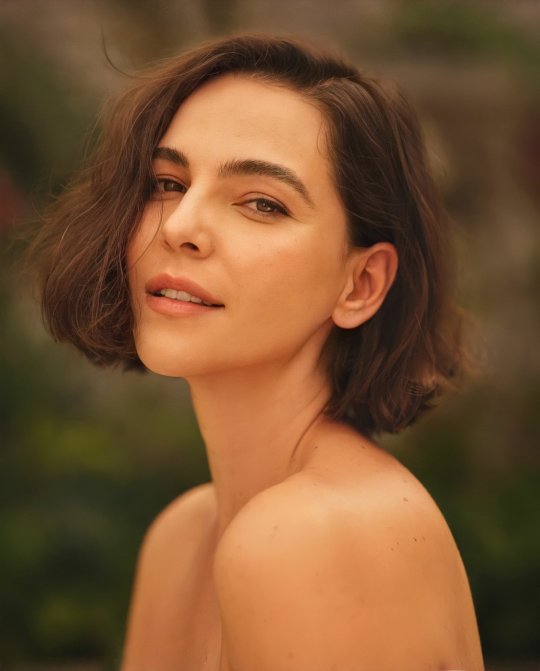
PHOTO BY GUSTAVO ZYLBERSZTAJN
“Good Morning, Veronica” is the adaptation of the book of the same name, by Ilana Casoy and Raphael Montes. The plot follows the journey of the police clerk Verônica Torres to find a criminal, and seeks justice for a victim of domestic violence, played by Camila Morgado - who impresses once again for her impeccable performance. Tainá Muller brings the experience of interpretation in police narratives that started in “Elite Squad 2”, when played a reporter in José Padilha's film, 2010. “At the time, I met many people from Bope, I learned that doing these labs is important.”
As in the film starring Wagner Moura, the plot of “Good Morning, Veronica” is also not easy to digest; physical and psychological violence unfolds in subtle and striking scenes. But the identification with the setting of the series, which takes place in São Paulo, makes the episodes to be seen even faster. Vale do Anhangabaú, Marginal Pinheiros and Tietê bus station are scenarios that make everything even more real.
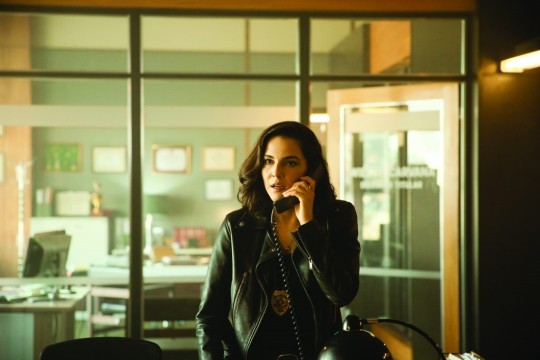
Tainá Müller playing the police clerk Veronica Torres – PHOTO BY SUZANNA TIERIE | NETFLIX
The city has also been the home of Tainá Muller since 2000, when she arrived in the country's largest metropolis at the age of 18. “It was the first time I took a plane in my life, I came to do the trainee at MTV, and soon I felt embraced by the nightlife and cultural life of São Paulo”, she says. I agitate that it misses a lot in pandemic times. “I've always been to concert a lot and that's how I met my husband (director Henrique Sauer), we missed these agglomerations, as well as missing my trip to Rio Grande do Sul and meeting my family.”
Like all of us, the pandemic went through Taina's life, changes that took her back to the couch, after years away from therapy. “I still cannot name the many transformations that 2020 brought me, I am elaborating everything in the analysis, but I already see how it is almost an obligation for those who could stay at home, safely, to develop a critical and sensitive look at what we are going through”, analyzes.
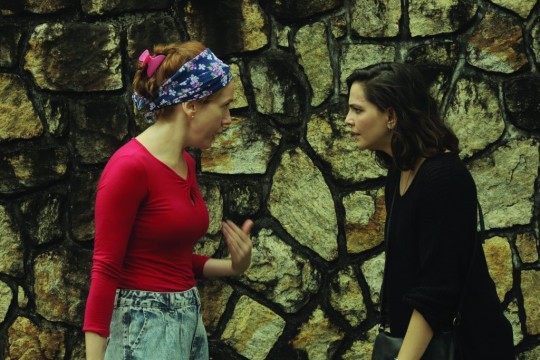
Tainá as Veronica and Camila as Janete, in the “Good Morning, Veronica” series – PHOTO BY SUZANNA TIERIE | NETFLIX
The post-graduate course in Philosophy, which the actress - graduated in journalism and former VJ of MTV - ends at a distance in quarantine, further sharpens Tainá's senses. "I am almost 40 years old, it is time to put on the scale what really matters in life, the readings of this course make me reflect a lot."
Courage that comes from home
With a intense theme, "Good Morning, Veronica" demanded a lot from the actress, including physically. “I did shooting exercises, I followed the daily life of a clerk in Rio de Janeiro, who went up in communities for operations, a routine that also has a different meaning for the women who are part of it”, she points out. "I remember one day she was colic, but she needed to get the rifle and accompany the team, it was amazing, it's about being a woman in a war zone."
To rest from these immersions and the recordings of the series, Tainá tried to maintain a family routine close to her son, Martin, then three years old. “I prepared for two months, I filmed in four, it was very intense and I was away from home, I wanted to make up for it”, she reflects. A situation similar to the life of the character she plays, Verônica, and many other real Brazilian women, who are divided between work, home and children.
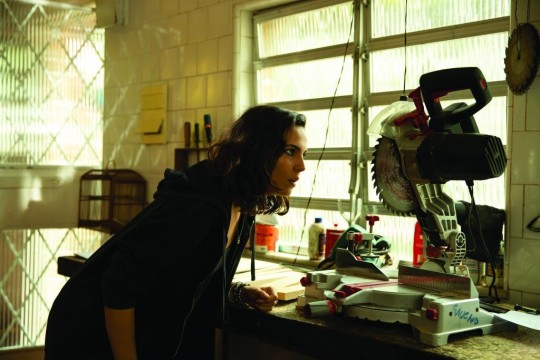
Tainá Müller playing the police clerk Veronica Torres – PHOTO BY SUZANNA TIERIE | NETFLIX
From her first family, the actress says she brings the courage and the gas to follow dreams without strings attached. “My parents raised their three daughters (she and the sisters Titi and Tuti Müller) to fall into the world, I didn't have this pretension that we would get married, it was more to follow our dreams, whatever they were”, she remebered. "I also think it has to do with the courage that the people of Rio Grande do Sul have, I see a lot that we are created to not give up and persevere, we have brought this a lot throughout history, I bring it with me today", she analyzes.
Multifaceted and prepared
With a blonde wig, a low-cut black dress and the characteristic birthmark of Marilyn Monroe on the face that Tainá Müller was on the stage of a theater for the last time before the pandemic, in the play “Os Desajustados”, written by Luciana Pessanha, directed by Daniel Dantas. The show took place in Rio de Janeiro in 2019. The plot involved a meeting of the Hollywood star with playwright Arthur Miller (Isio Ghelman), actor and singer Yves Montand (Felipe Rocha) and actress Simone Signoret (Cristina Amadeo), in 1960 at the Beverly Hills Hotel in California.
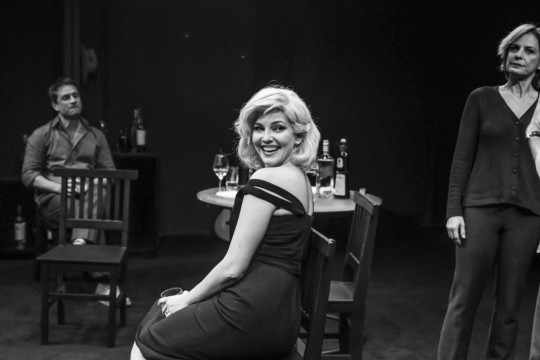
Tainá Müller as Marilyn Monroe in the play “Os Desajustados” – PHOTO BY MANU TASCA
“Marilyn is a character of any actress's dreams: complex, multifaceted, tragic. It was very challenging to embody her, because everyone has your own Marilyn, loves her in some way, already knows something about her life”, she reflects. “I miss the theater, I think about doing a solo play soon.”
Alone or surrounded by other actors, 2021 reserves a lot of work for her. In recent months, Netflix announced the second season of the series “Good Morning, Veronica”. "We will film as soon as the vaccine comes out," says Tainá. While we wait anxiously for the most desired item in the world, the actress is already physically preparing to live again the police clerk Veronica Torres. "I exercise, I started boxing classes," she says. "I need to be prepared, because this year will be intense, I want to move!"
This paper is a free translation of Tainá Müller's interview. All rights reserved to 29 HORAS magazine.
2 notes
·
View notes
Text
Tainá Müller: A Voice to be Heard

by Tudo | Oct 13rd, 2020 | Interview
Student of Philosophy, the actress believes that without debate there is no democracy
She is one of the eloquent voices of feminism. She is active to talk and reflect on this and other subjects such as: pandemic, philosophy, environment, artificial intelligence, social networks, and of course, on the new Netflix suspense series “Bom Dia, Verônica”, but the adventures of the actress do not end there, with release scheduled for the end of the year, Tainá is writing a book on motherhood. "It's a kind of philosophical chat, a little unpretentious, but with a lot of confessional moments of exchange," she explained.
In this exclusive interview with TUDO magazine, Tainá reveals herself to be a safe and mature woman to make her choices.
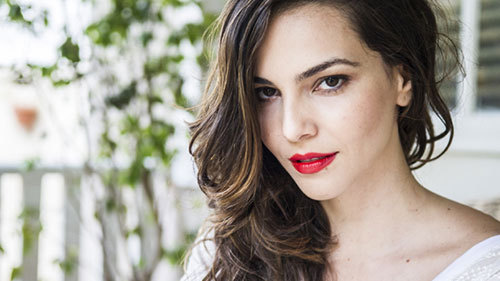
PHOTO BY CYNTHIA SALLES - Globo
Revista TUDO: Debuting the series “Good morning, Veronica” on the streaming platform, you play a clerk who decides to investigate a crime. During the creation process, did you ever visit a police station and learn a little about a clerk's routine? How was your laboratory and how long did it take you to prepare for this job?
Tainá Müller: Yes, I did a two-month preparation with Sergio Penna, which included a visit to the homicide police station in Rio. There, I had access to the routine of police officers from many areas, studied cases of femicide to understand the particularities of this crime and followed the work closely of a clerk. All of this was fundamental to Veronica's composition. But other than that I also had an emotional preparation, to dive into the psychology of the character from the script and a body preparation, which involved fights and shooting classes.
RT: As a matter of fact, the series addresses a little explored genre - thriller -, especially on broadcast television, do you believe that the streaming platforms give the opportunity for the actors to work on other, more interesting themes outside the box?
TM: For sure. The Brazilian audiovisual market is changing very fast, following the global trend of globalization of content. With that, it is natural that we have a greater diversity of themes, genres and how good we are having this opportunity here in Brazil. “Good Morning, Veronica” got my attention from the beginning, precisely because it was very different from everything I had ever seen.
RT: In March the whole world was caught off guard by a pandemic causing the population to be quarantined, isolated, and all of us were affected in some way, some more others less, emotionally, financially. How did those days go by for you and your family?
TM: It was full of emotional, ups and downs, on this roller coaster that became 2020. It is a period of fear and uncertainty and I don't think there was a person in the world who was not affected by this impact. And it is not just the pandemic, there is something very strange in the air in politics, in climate change, in our behavior. But honestly, despite feeling it all, I don't feel comfortable complaining about anything right now. I am aware of my privilege and how hard it is being for people in the most vulnerable positions. I am very sad to see all this around me, I try to help as I can and I take it one day at a time.
RT: We saw that you participate in a group that discusses feminism, an important action nowadays, but how do you see the feminist movement 20 years from now, for example? Because although we have achieved a lot, there is still much to do.
TM: About three years ago I started to study feminism more deeply. I owe a lot to teachers Djamila Ribeiro and Márcia Tiburi, who gave weekly classes to this group of mine on the subject, in a very philosophical and academic way. I honestly cannot imagine what the world will be like in twenty years, but in my utopias I create a much more feminine world, in every way. We have been living for centuries in an energetic imbalance between feminine and masculine. The two forces must be in harmony and equality in order to prosper without self-annihilation. Patriarchy has been stifling the feminine of the world for so long that today we need to fight for the most basic rights. I believe that the toxicity that we experienced at that time comes from this virility without measure, which is predatory, without care and without reflection. I hope that men can be free to rediscover their feminine side of protection, nutrition and delicacy with details, with the subtle. And that women rediscover all the creative power that the feminine has, without the fear of violence, oppression and silence. I gradually feel that this movement has already started. Men and women are becoming more aware and the backlash of this is an attempt to hold on to the unstoppable which is the path of evolution.
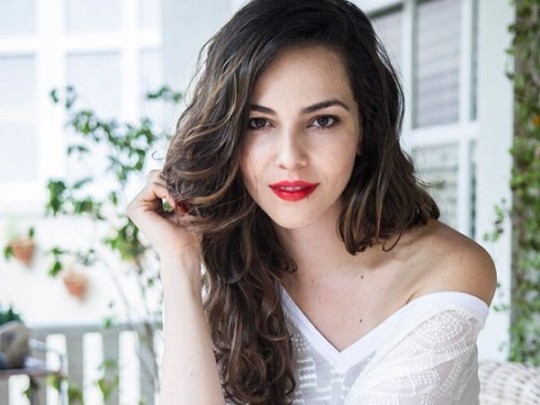
PHOTO BY CYNTHIA SALLES - Globo
RT: Back to the classroom you chose the philosophy course, and philosophy is the search for knowledge, reflection, questions and wisdom, but in the midst of everything that is happening (deforestation, homophobia, prejudice, intolerance, patriotism, hatred and etc.). Can you see a light at the end of the tunnel for future generations?
TM: I believe that the light at the end of the tunnel will not magically come out, it is the result of building thought, of resuming the ability to imagine. Yes, I think that today's social upheaval is an identity crisis caused by the excess of (dis) information that we receive every day through the screens. Our thinking is influenced by an algorithm that constantly reaffirms our tastes and values, creating thought bubbles with insurmountable walls. At the same time that we are all connected, we are watching the debate dies. And without debate, there is no democracy, you cannot reach a place of common interest. We have a lot to think about, what to invent and what to review in order to get out of this web of immobility that holds us. Perhaps the only thing that unites us, regardless of values and political position, is that we want a different world from the one we have now. We all have the feeling that “something didn't work out” and that we need to fix it. I believe that everyone today with food on the table has the duty to put their head on thinking about a new world, one that accommodates diversity, one that is more free and fair, more egalitarian and, above all, more ecological. How are we going to do it? I have no idea. But if we don't start debating and thinking now, it won't happen in the future. We need to stop falling into the trap of re-discussing ideas from 100 years ago and start looking ahead. We need to bury the 20th century in order to enter the 21st century definitively.
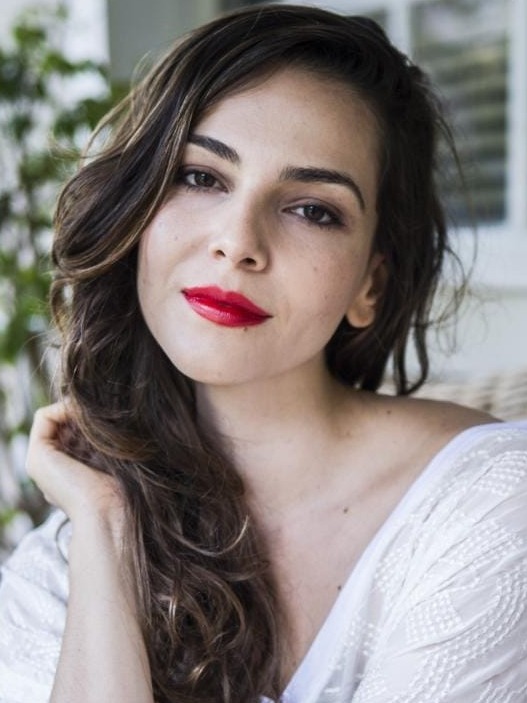
PHOTO BY CYNTHIA SALLES - Globo
RT: You are also scheduled for the original series “Evil Secret”, which is slowly return to filming. How has adaptation been at work in the midst of a pandemic? And taking advantage of the opportunity, how is your character [in the series], personality, behavior?
TM: My character is a criminal lawyer who gets involved with the forensic psychiatrist plays by Sergio Guizé. I can't give spoliers (laughs) but I hope to be able to start filming soon.
RT: Recently, the psychoanalyst Contardo Calligaris said that relations will be cleaner and more truthful among people in the post-pandemic period. What is your perception of the post-pandemic world? Do you already notice the change in the people around you?
TM: I believe that we still cannot measure the impact of all this change in our relationships, but I believe that the imminence of death always brings a lot of learning. At least I am on this path, of continuing to foster relationships of true exchange, of honesty and I have less and less patience for social masks. I hope that this is a trend and that we can increasingly live in authenticity.
RT: Taina, we would like to know a little more about the book you intend to write talking about motherhood. As it is a very specific topic, we would like to understand what the main approach you intend to take, and also how the idea came about? What is the name of the book and if it has a release date? Are you writing alone?
TM: This book emerged from the invitation of Companhia das Letras to write about the topic after a text I published in the newspaper “O Globo”. It is the result of a dialogue with Marcos Piangers about parenting in this changing world, about what it was like for us to be a son and now what it feels like to be a mother of a boy and a father of girls. It is a kind of philosophical, unassuming conversation but with very confessional moments of exchange. We plan to launch by the end of the year. It is late because of the demands of the pandemic, or rather, of our own parenting at that moment without school and without help.
RT: You recommended a documentary: “The Social Dilemma” that talks about artificial intelligence and the algorithm. But I wanted to understand how you do to keep mental health balanced and away from social networks, in a world where posting more and more has become essential in the lives of many people. How do you control these longings that come many times, without us noticing?
TM: I can say that today, despite being aware of the problem, I am totally immersed in it. And I wonder if I will ever have my brain and my time back. We have been captured, our professions and networks depend on it now, our entire generation is in the networks. The “I think, therefore I am”, became “I post, therefore I am”. Who has never experienced the strange sensation of living something very special and feels obliged to “leave” the moment to post, why not register there on the networks it seems that the moment did not even exist? Anyway, I hope that we will wake up and at least fight for the regulation of this trillion-dollar technology industry, so that we are not completely dominated by it. Otherwise, we will see democracy giving complete space to the supremacy of the industry and that is scary. I believe that it is possible to maneuver this transatlantic and change this route, strengthening and reaffirming the control institutions. There is a lot of shade, but there is also a lot of light in the technologies. Today I can attend a class by an indigenous leader directly from a village in Acre, something that would have been impossible years ago. So I root for ethics.
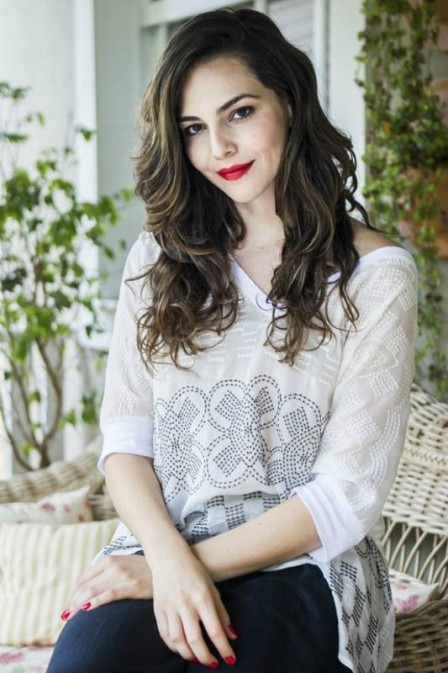
PHOTO BY CYNTHIA SALLES - Globo
RT: You said that when the vaccine comes out, the first thing you will do is take your son to visit the Nova Esperança village of the Yawanawas, it is sad to see everything that is happening with the forests, with the animals and with the indegenous. But do you believe that there will be time for salvation as government officials are not committed to resolving these issues?
TM: There has to be time. But we have to be more active, as civil society, to fight for what is right for us, which is a livable world. And protecting the indigenous is also self-protection, since they are the guardians of the forest that sustains the biochemical balance so that life on Earth is still possible. Not only that, they also have an ancestral knowledge of survival and harmony with the environment that we urgently need to recover. The decolonization of our thinking is fundamental to our own survival. The indigenous people teach us to "think outside the box" and I think that today they produce the most contemporary thinking of all, so whenever I can I hear what they have to say. I realize that they bring a different logic of existence, much more connected to the essence of life much more integrated with everything that exists and with the true “key to happiness” that capitalism wants so much to sell and cannot achieve, bringing only insatiability of desires. I am sad because we are privileged in Brazil for having all this wealth of cultural diversity in the country, which wants and has a lot to teach us, but we do not value it. We still do not see our true gold, which is the power of our original peoples and their way of life. We cannot let capitalism destroy our greatest wealth. We need to act and it is now.
This paper is a free translation of Tainá Müller's interview. All rights reserved to TUDO magazine.
0 notes
Photo

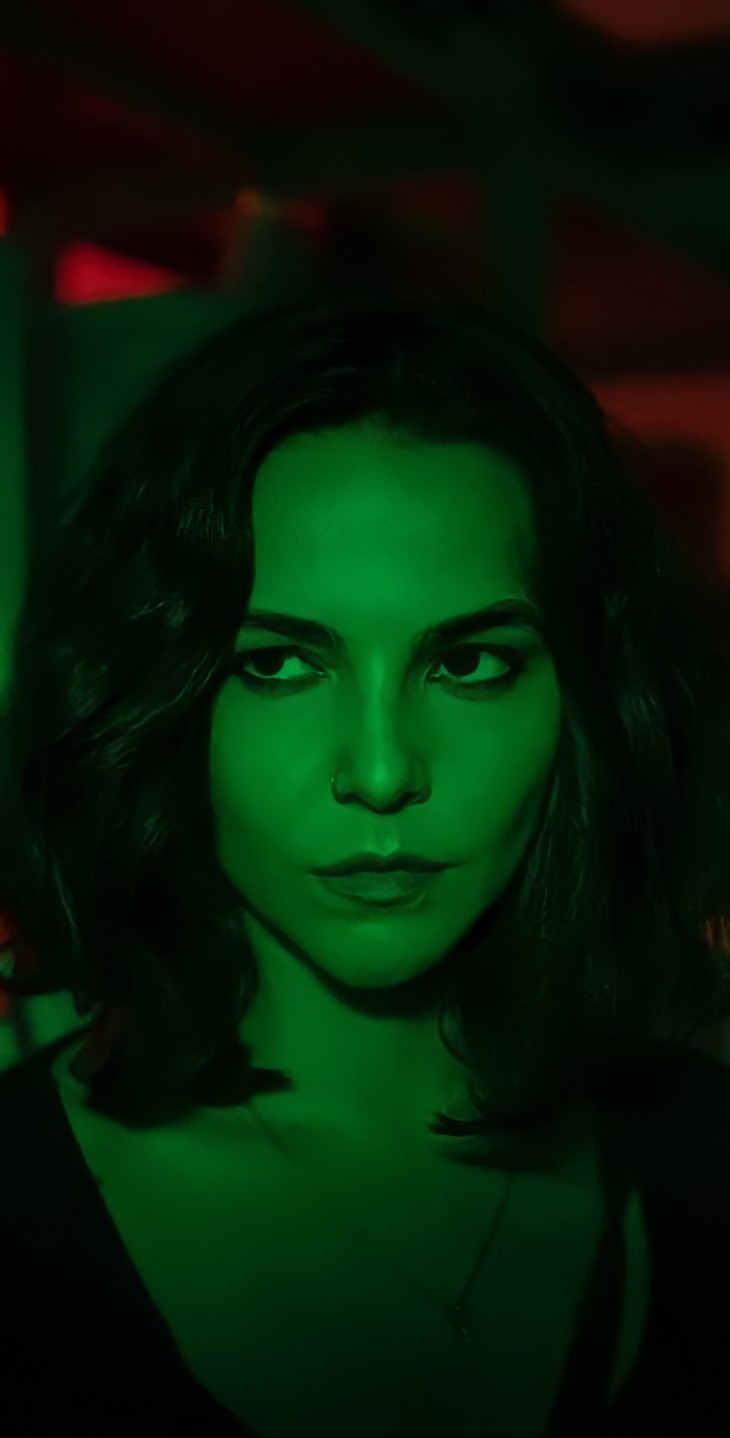
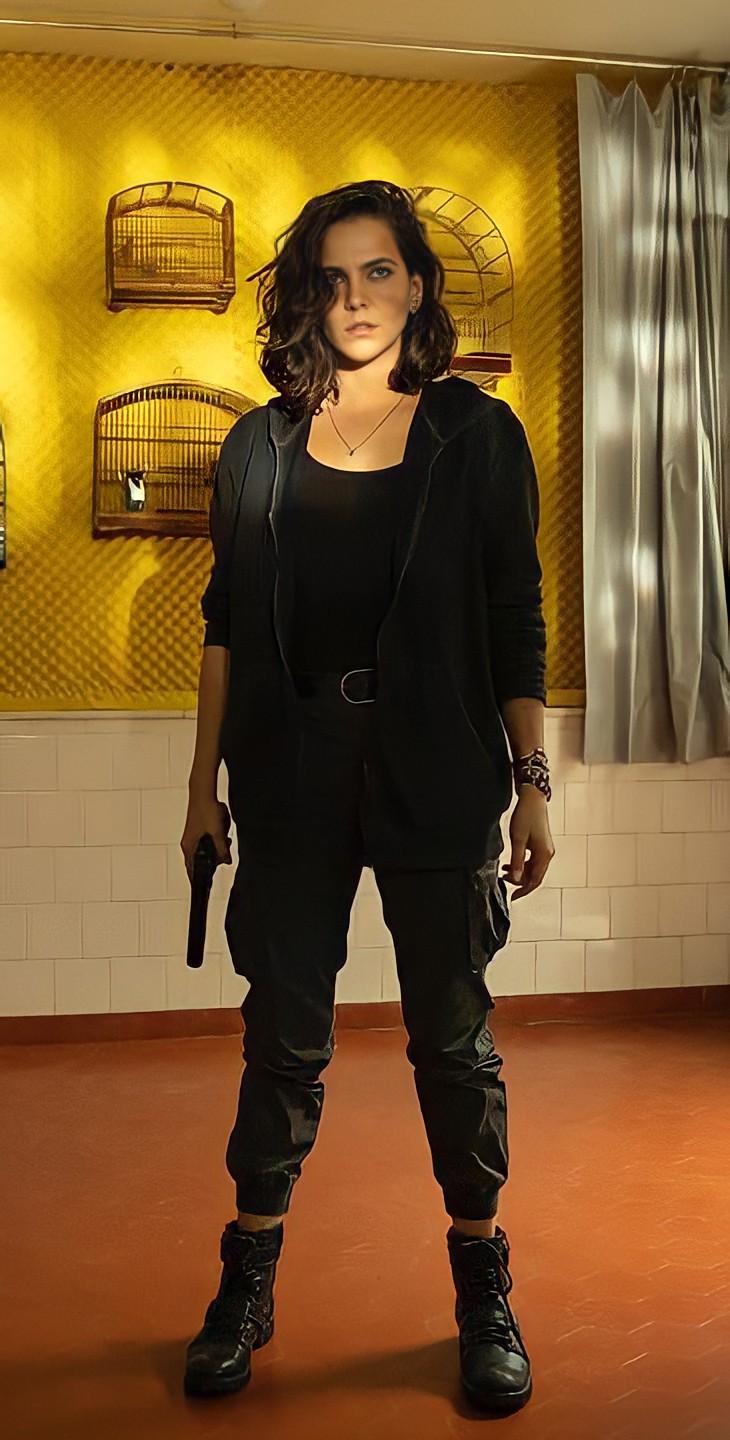
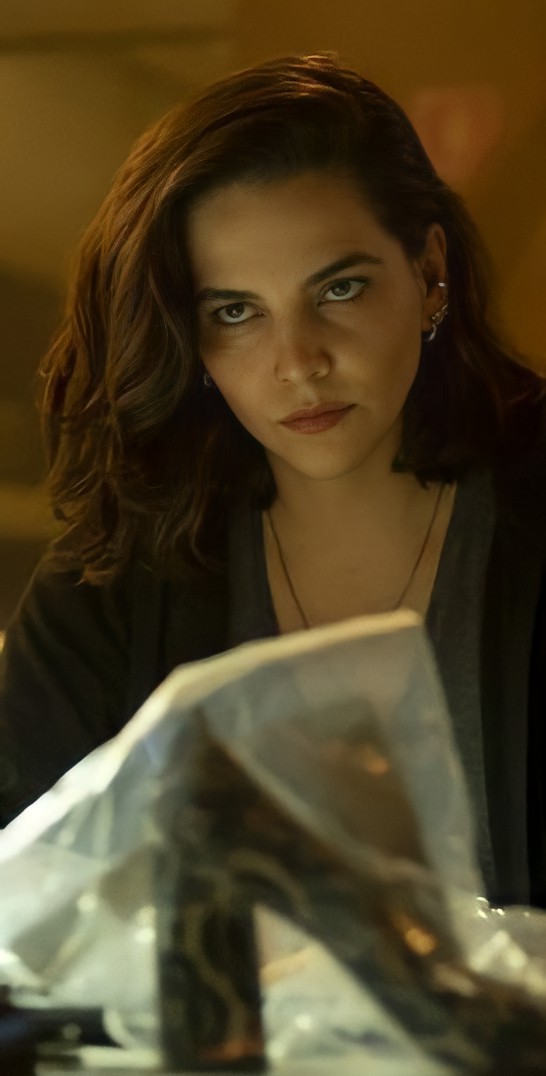
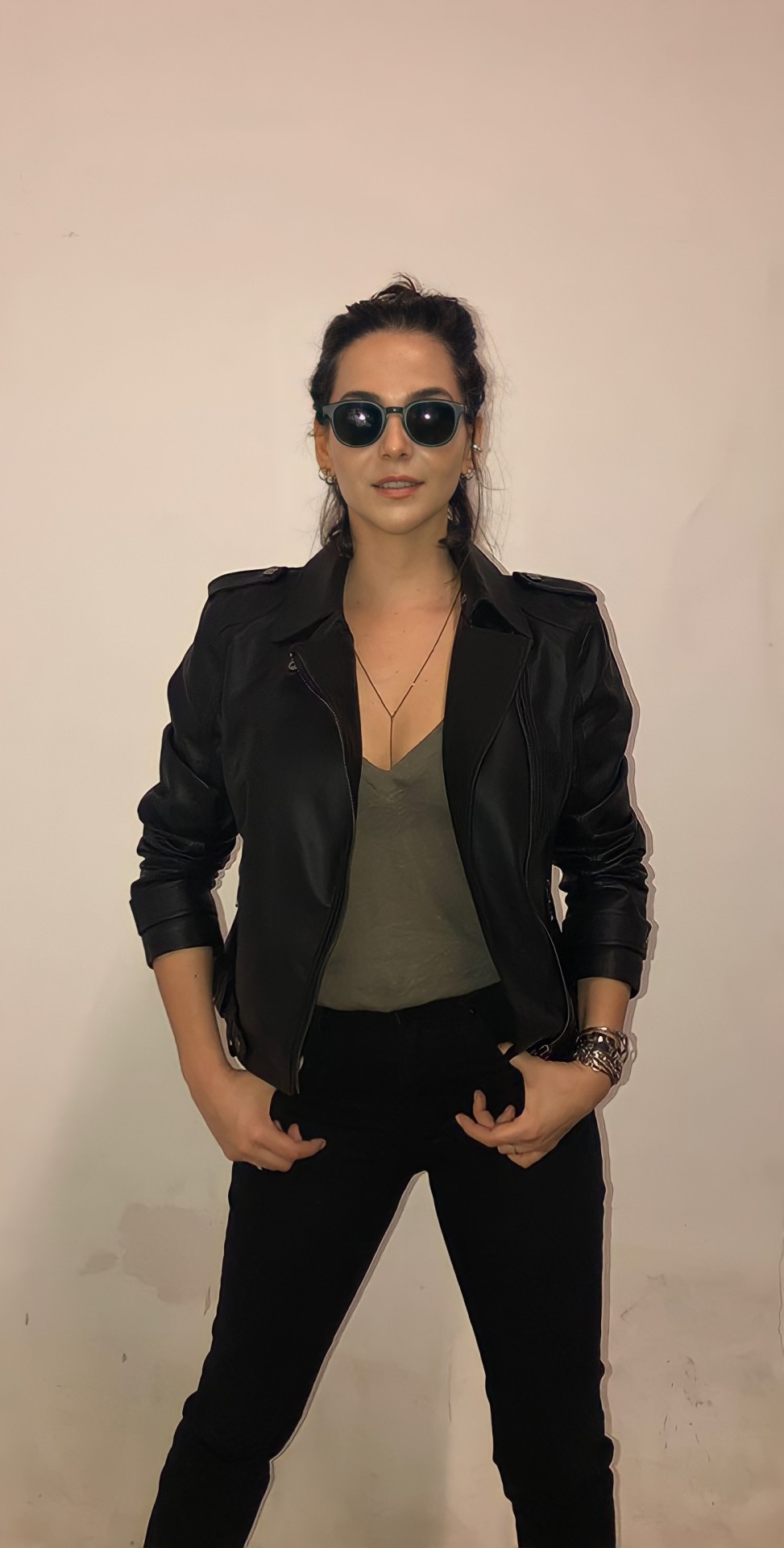
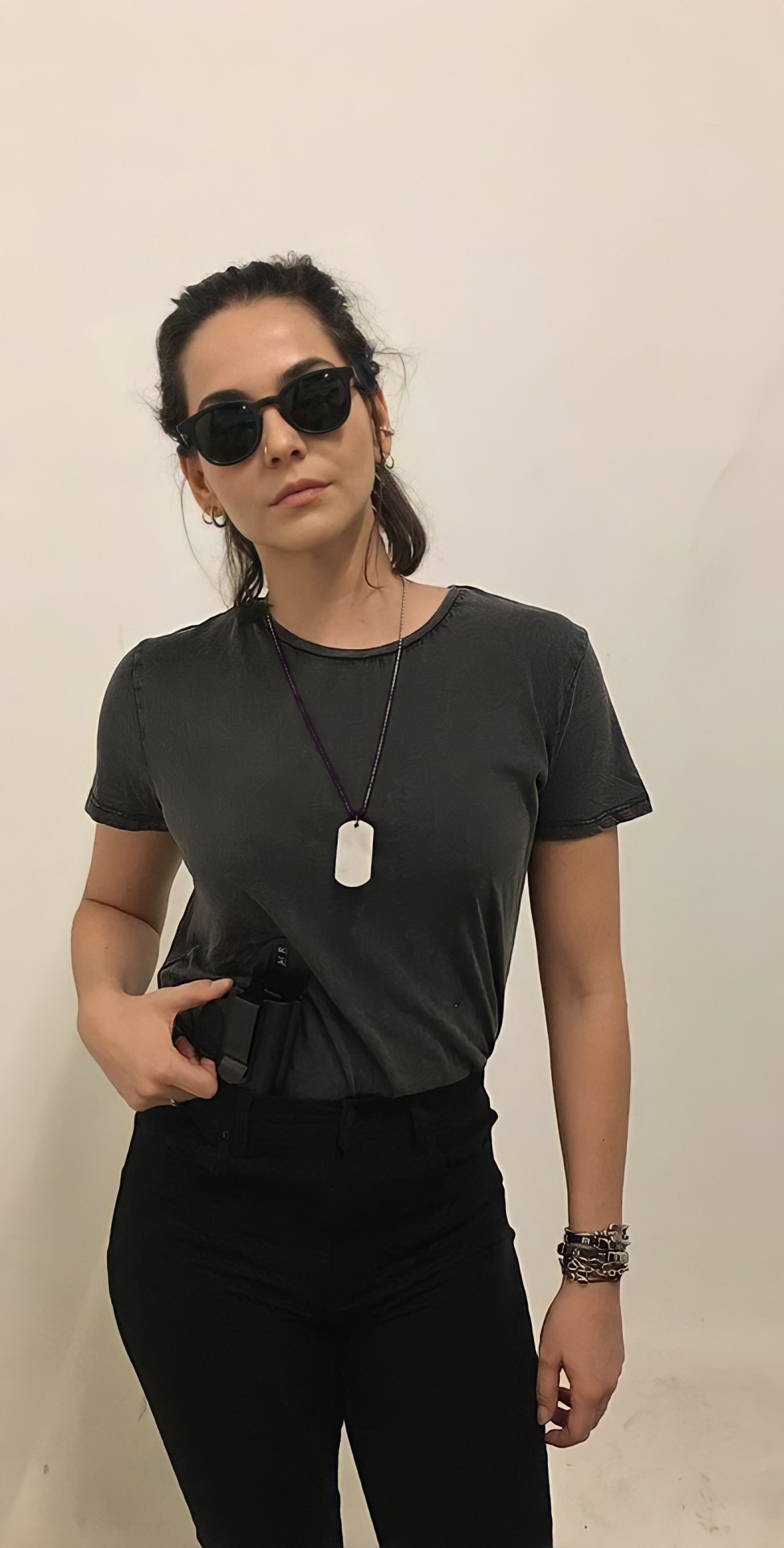
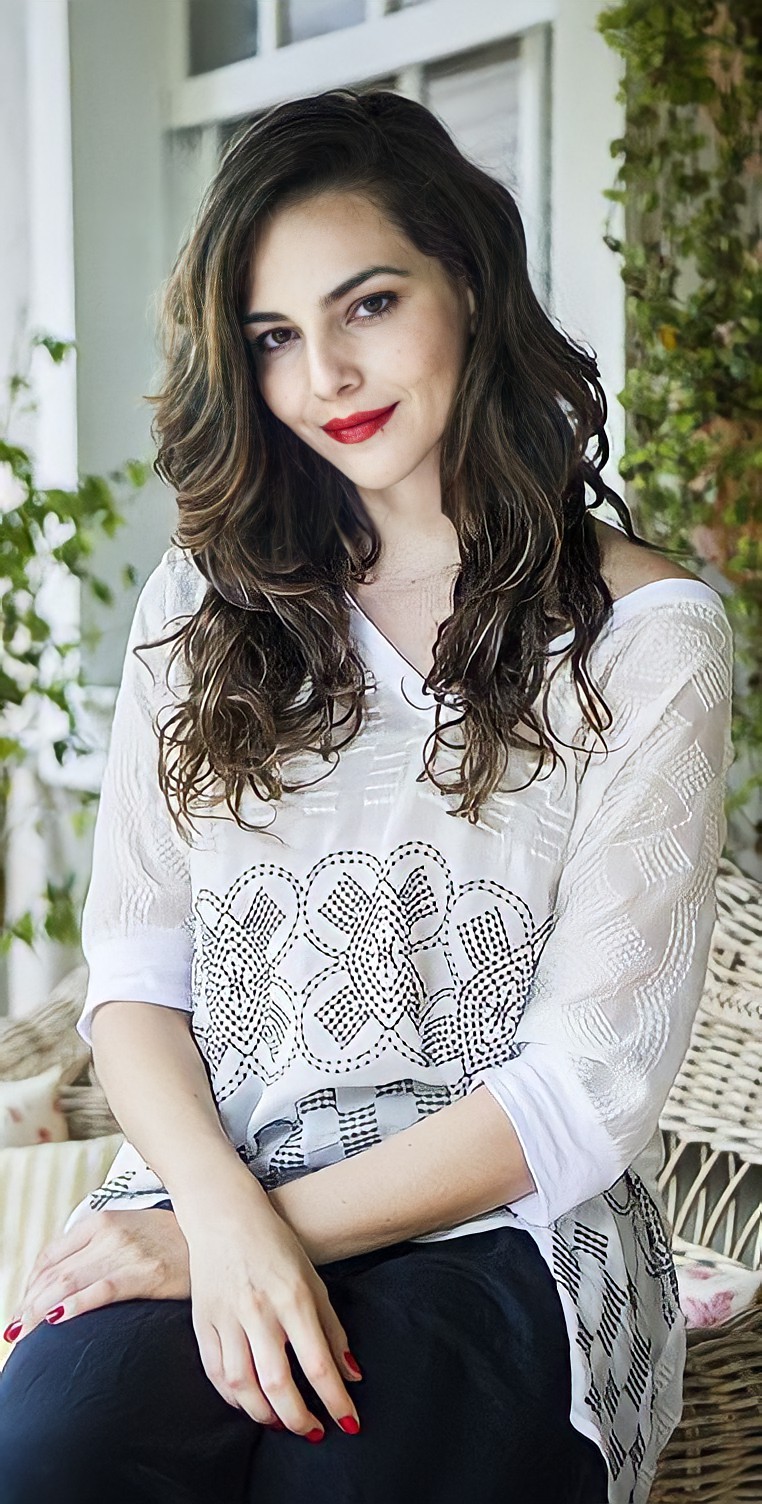
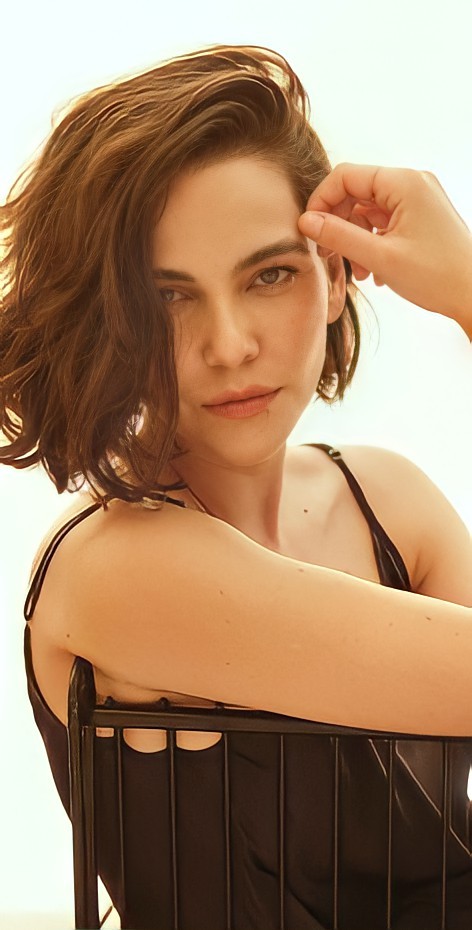
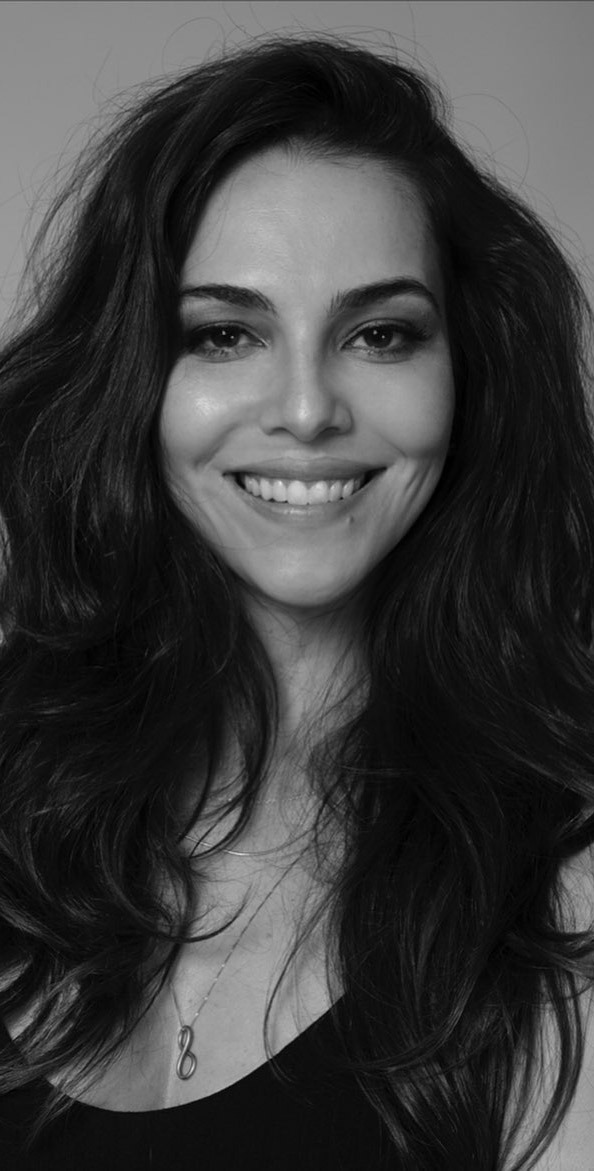
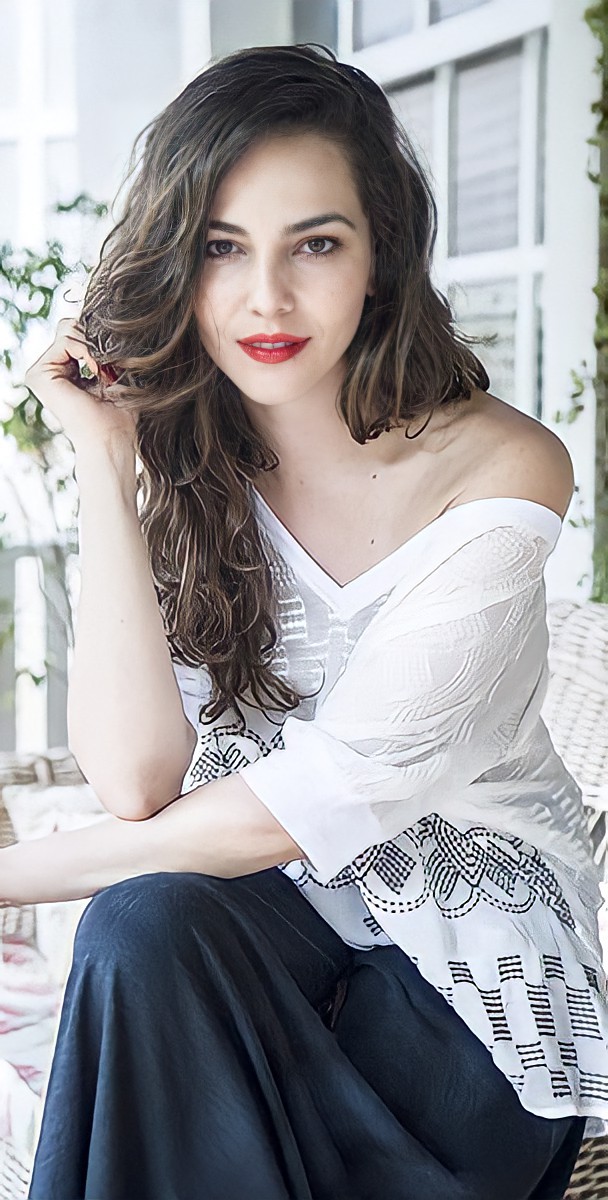
Tainá Müller wallpapers
38 notes
·
View notes